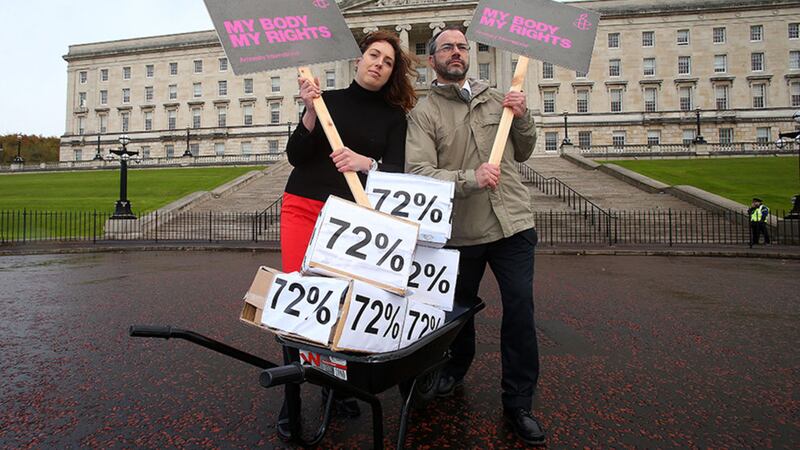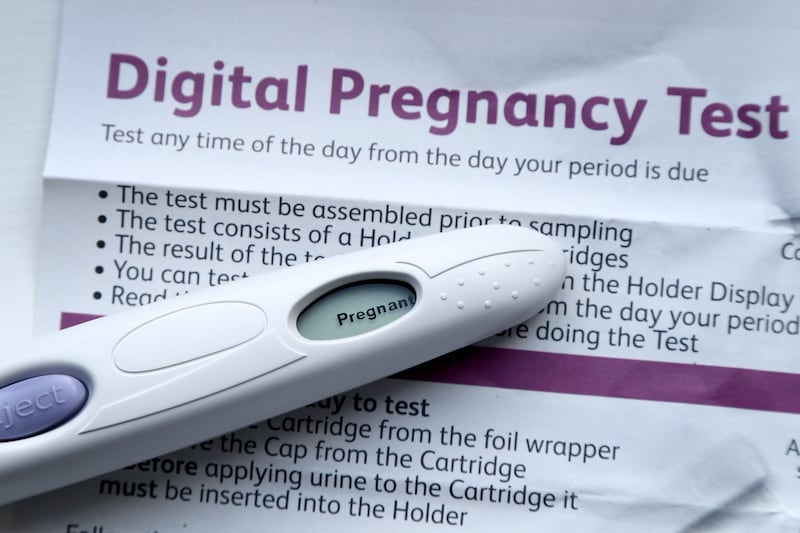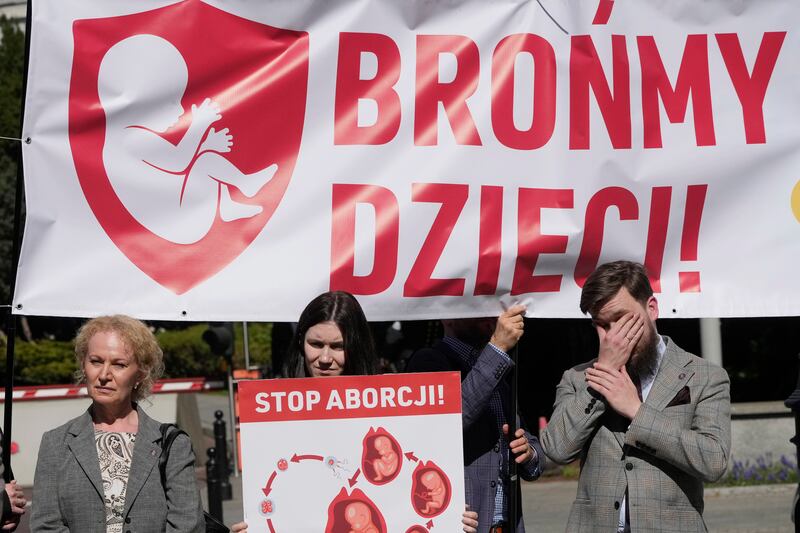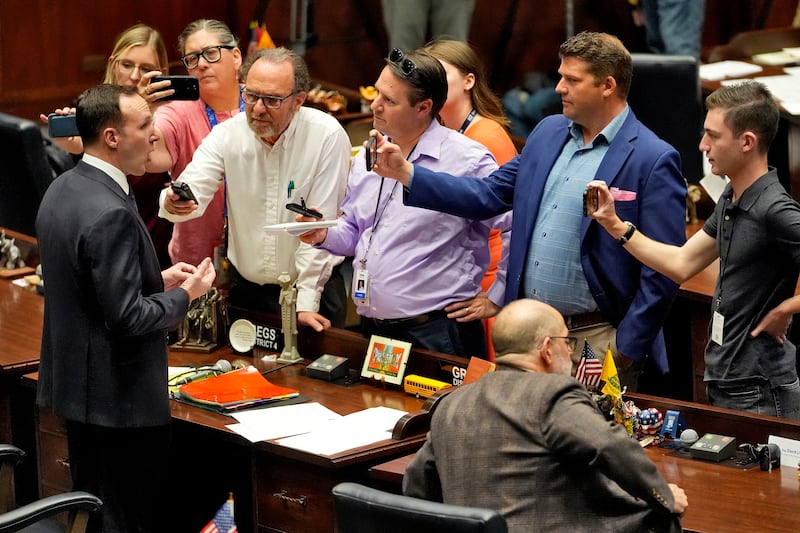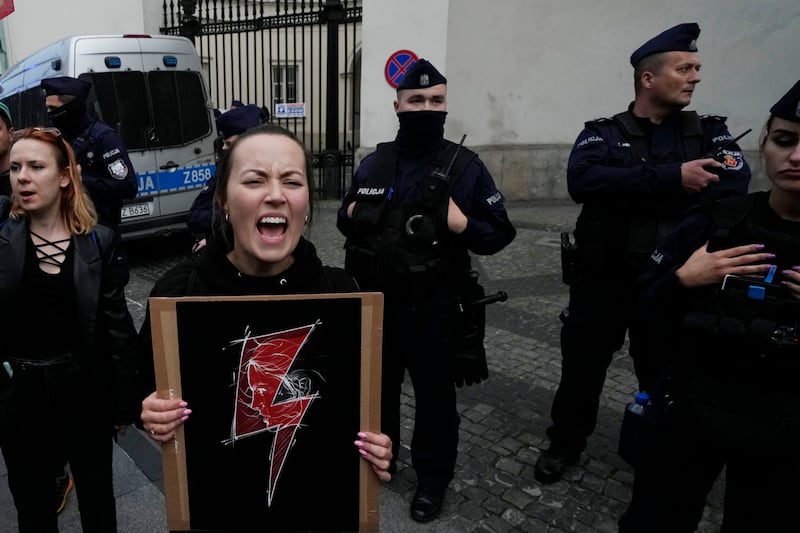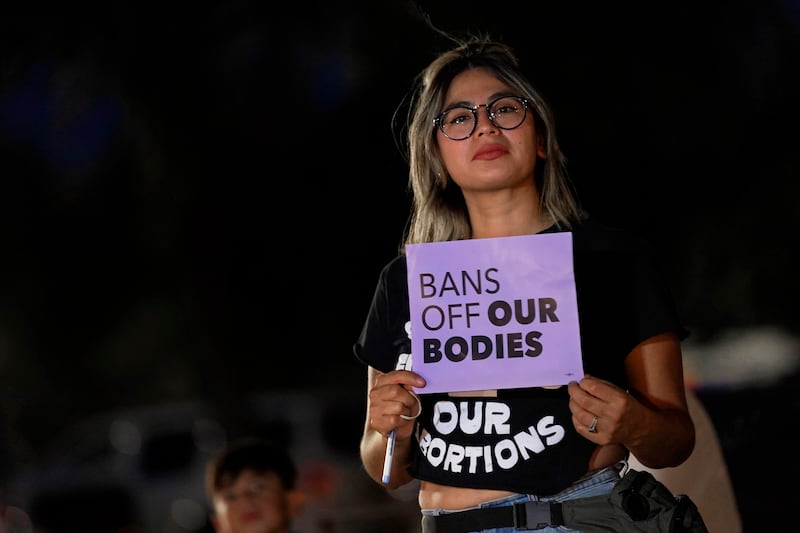A petition of 45,000 signatures demanding reform of Northern Ireland's strict abortion laws has been handed in to Stormont.
It was delivered to the steps of Parliament Buildings in Belfast in a wheelbarrow by representatives from Amnesty International.
Amnesty spokeswoman Adrianne Peltz said political leaders must take note.
She said: "It's time to separate the criminal system from our health system.
"We hope the politicians will be reading these statistics and taking a hard look at themselves. For those who have been afraid to be brave we would say 'take the leap of faith and make change' because Northern Ireland as a country is changing."
The petition comes after a new Amnesty poll found 72% of people wanted abortion permitted in cases of incest and rape - while 67% supported a woman's right to terminate pregnancy when there has been a diagnosis of a fatal foetal abnormality (FFA).
Amnesty said the results indicated increasing support for law changes, as a similar poll commissioned by the organisation in 2014 measured the levels of support for abortion in instances of sex crimes and FFA at 69% and 60% respectively.
Of the 1,000 people surveyed, 58% thought abortion should be decriminalised so there would be no criminal penalty for woman who have terminations in Northern Ireland.
A similar proportion - 59% - thought it should be decriminalised so there would be no criminal penalty for doctors and medical staff who assist women to have abortions in Northern Ireland.
Ms Peltz added: "The current law is a 19th century law which may have been fit for legal purposes then but it is certainly not fit for legal purposes in 2016.
"Criminalising abortion does not stop it. Banning it in Northern Ireland does not stop abortions from happening. We are just exporting the problem and we need to be treating women with compassion, dignity and give them their human rights here in Northern Ireland. And the statistics show that people agree with us.
"45,000 signatures on this petition that we are handing in also proves that across the country people care about this issue."
The findings will be passed to Executive ministers for consideration.
Former Justice Minister David Ford, who received the petition, said: "I don't know how ministers will respond but I do believe it is essential that we have a serious consideration of the issue.
"The results are very similar to opinion polls that we saw previously.
"It is clear there are a small number of women who are suffering very severely because of the way the current law is."
Meanwhile, Green Party MLA Claire Bailey said she was hopeful change was coming.
She said: "We have seen growing support on this issue. We have seen women coming forward having to expose their very personal and often traumatic stories. We have had pathologists having to resign their jobs, we have had so many really bad stories having to come out and still our politicians are not taking notice and acting appropriately.
"I don't know what the final straw is going to be but I am certainly hopeful that change is coming."
Pro-life groups are opposed to a relaxation of the law in Northern Ireland and have argued for more support for pregnant woman.
Last year, a High Court judge in Belfast ruled that the ban on terminations in instances of sexual crime or fatal foetal abnormalities were incompatible with international human rights laws.
Attorney General John Larkin and Stormont's Department of Justice appealed against that ruling. Judges are considering arguments made during the appeal hearing.
The Evangelical Alliance criticised Amnesty's stance, accusing the organisation of campaigning to "radically undermine the human rights of the unborn child".
Peter Lynas, NI Director, said: "Abortion is always a sensitive issue, but particularly for those who have suffered from rape or incest or are carrying a child with a life-limiting disability. However, both lives matter, and as a progressive society we must seek the outcome that is best for both, difficult as that may be.
"It is time for Amnesty to tell everyone clearly what law on abortion they are actually campaigning for - do they support any limits on choice?
"Decriminalisation would move Northern Ireland well beyond the 1967 Act (that applies in Great Britain). It is also time Amnesty explained why they only support equality for some and seem content to discriminate against those who are most disabled.
"There is widespread support for capital punishment in many countries including America, but Amnesty rightly campaigns against the death penalty. It cannot simply pick and choose when to use polling because it suits particular causes. Human rights exist regardless of opinion polls."
